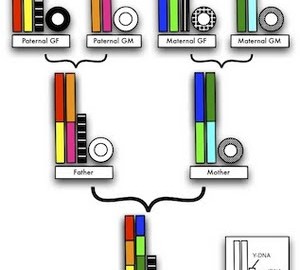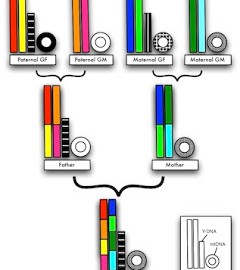In my youth I was avid book collector. I spent a good dozen years working on building my collection of books, finding books in stores across three continents. The books I was collecting dealt largely with the British Mandate of Palestine, during the years between WWI and when Israel became an independent country in 1948. From bookstores in big cities to a bookstore I used to visit inside a barn that would only open in the summers, from Boston to New York to San Francisco to Jerusalem, I visited a lot of stores to find books. I even remember searching the basement of a large used bookstore in Hay-on-Wye in Wales, during the Hay Festival many years ago. I actually found a number of good books which I had to ship back to the US, which took months to get to me as book rate shipping was slooowww.
Things have changed a lot since then, with the Internet being the main cause of the changes. An interesting anecdote illustrates the point. Before I moved to Israel, I used to visit a couple of times a year. Each time I visited I would try to visit a series of used bookstores scattered around Jerusalem. Usually I would make a day of it and walk to all of these bookstores one at a time. One store was located right in the center of the city, run by an older man. He would buy whole collections of books from families in Israel and would sometimes have books I was looking for after such a purchase. After visiting his store for a few years I asked him if he had an e-mail address so I could contact him occasionally to see if he had gotten any of the books I was looking for in stock. He laughed at me, of course he didn’t have a new-fangled e-mail address. The following year I visited the store again and lo-and-behold he had an e-mail address on his business card. Progress. The next time I visited his store, he had a computer on his desk. Not only did he have a computer, but he was searching eBay for items to sell in his store. I don’t think he was yet selling items on eBay back then, but now he has a large ‘Ebay Store’ where he sells items online.
The above story is fairly typical of the evolution of small bookstores in the age of the Internet. On the one hand, in the old days you could find real bargains on books if you found them in a store that didn’t know anything about the particular book, on the other hand it was also very difficult to find specific books. Booksellers would offer search services, where I guess they contacted other booksellers and asked about the existence of the book in other stores’ inventories. Today the Internet has changed how used books are bought and sold. If you’re looking for something very specific, you’re unlikely to find a bargain anywhere. Every small bookseller out there, even the one in the barn that only opens during the summer months, is hooked up to the Internet. The bookseller may not have a web site where they sell their books directly, but at the very least they know how to price specific books based on the prices for the book elsewhere on the Internet. Booksellers upload their entire inventories to bookseller network sites like alibris.com and abebooks.com, which handle the web site selling, and allows customers to search across thousands of tiny booksellers and see all of their inventories in one search. You can even search across these different network sites by using a site like bookfinder.com. Chances are if you can’t find a book on bookfinder.com, you won’t find it in any store anywhere (at least for the languages it supports). That is a very different environment from the days when I originally went from bookstore to bookstore searching for books. Today it’s not about searching for a specific book, but more about figuring out which ones you can afford to buy online. Something is lost in the translation of course, and searching online is not the same as wandering the aisles of used bookstores, smelling the aging books, finding books one wasn’t really looking for, or finding the one amazing bargain you could never have imagined. Progress.
Specialist used booksellers would publish paper catalogs of their books. Usually they would send out these catalogs to their customers a few times a year, showing new acquisitions. Can you imagine the costs involved in such a practice? How many booksellers do you think mail out hard copy catalogs today? I still get e-mail catalogs from these some of the same booksellers that used to send me paper catalogs, even years later, which is a smart way for me to look at their new inventory. I imagine if e-mail didn’t exist, I would have been dropped from these booksellers’ mailing lists a long time ago, for not buying books recently.
Of course, no discussion of the change in finding books would be complete without discussing the impact of Google Books. Google has made deals with libraries across the world, and worked with them to scan millions of books and put them up on the Internet. For books out of copyright, the whole books are posted online for viewing. Google has built, for lack of a better analogy, the world’s largest library. You can even download PDFs of the books for off-line viewing. For books still covered by copyright, Google works with the publishers to restrict what parts of the book the publisher wants people to be able to see, and directs people to buy the book if they want to read the whole book. Google’s recent move into selling eBooks will blur the lines between library and bookstore.
So what does all of this have to do with genealogy you’re asking? Well, strictly speaking this blog is not solely about genealogy. The truth is, however, that there are a lot of books on the topic of genealogy that you can find free on Google Books, or you can locate physical books through many of the various search sites I mentioned above. You can preview the books on Google Books, or sometimes on Amazon (when the publisher has added a preview) and then search online for the best price on a used copy. Amazon also lets you buy used books, but checking the other sites will give you more buying options. Amazon owns AbeBooks.com, chances are the used book results on Amazon and the results on AbeBooks.com will be fairly similar.
I still find it hard to pass by a used bookstore and not wander the aisles for a few minutes, even if I don’t end up buying something I enjoy look for books, I enjoy the smell of the books, I enjoy the very fact that there is a small business dedicated to selling books. Searching online is not the same, although it is gratifying when that one book you’re looking for shows up after a 30-second search online instead of spending years looking for it in dozens of bookstores. Happy hunting.




